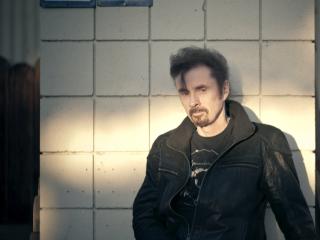Evolutionary biologists Jeff Schloss and David Sloan Wilson joined Steve Paulson to explore how group selection can explain altruism.More
Science and Technology
Can you fall in love with anyone? Maybe, if you ask the right questions.More
Psychologist Lisa Diamond offers a radical new understanding of sexual orientation, arguing that it’s much more fluid than previously believed.More
Even facing the bleakest outcomes that climate change might inflict on our planet, we have to have faith in a new future. That’s something writer Anne Lamott has been struggling with too.More
How neuroscientist Tali Sharot accidentally stumbled on what’s known as “the optimism bias” — our hard-wired belief that our future will be better than our past or present.More
Throughout history, we've been surrounded by substances that seemed benign and innocent in our food, in our gardens, in our medicine cabinets — until we realized they could be slowly killing us.More
The COVID-19 pandemic was some epidemiologist’s nightmare when Adam Kucharski was writing "Rules of Contagion." The book draws on ideas from “outbreak science” to illuminate how and why viruses spread.More
Married couple Ilan Kedan and Christina Lombardi work at Cedars-Sinai Hospital in Los Angeles, and they each decided to participate in two separate medical trials for COVID-19 vaccines.More
Science writer Sarah Zhang has reported extensively on the newly-developed COVID-19 vaccines — how they work, the logistical and psychological challenges of the roll out, and what they mean for our society.More
How does a hummingbird survive in subzero winter temperatures? Why endure them at all? Author T.C. Boyle couldn’t understand why the small bird would be anywhere near his mountain writing retreat, but he found the answer in Bernd Heinrich’s “Winter World.”More
Depending on where you live, winter can be tough to get through. It’s cold, it gets dark early, the weather’s messy. Naturalist Bernd Heinrich shares some amazing stories about the ingenious ways animals survive winter.More
Knowing how animals survive winter is good, but how do animals sound in winter? For that we turn to Douglas Quin, an award-winning sound designer and composer whose album "Fathom" contains underwater field recordings from the polar regions of the earth.More
What happens when an entire nation is social distancing and avoiding contact? Dr. Tiffany Field, founder and director of the Touch Research Institute at the University of Miami Medical School, tells Anne about the power of therapeutic touch. More
Could being digitized be a way for all of us to become immortal? Maybe, but not in a way we would particularly enjoy, as this story from listener Mark Pantoja illustrates.More
Guy Leschziner is a sleep physician, running one of the largest sleep clinics in Europe, with a specialty in bizarre conditions. He told Steve about the moment he first realized how much sleep matters.More
Tania Munz recently wrote a biography of Karl von Frisch — the German scientist who cracked the mystery of the honeybee’s waggle dance, which shows the rest of the hive precisely where to find a new food source miles away.More
In many parts of Detroit, there are blighted, abandoned patches of land. Instead of looking the other way, Timothy Paule and Nicole Lindsey started buying up vacant lots and building bee hives as an act of urban renewal.More
Christof Koch, a leading neuroscientist in the field of consciousness, says bees are smarter than we ever imagined.More

















